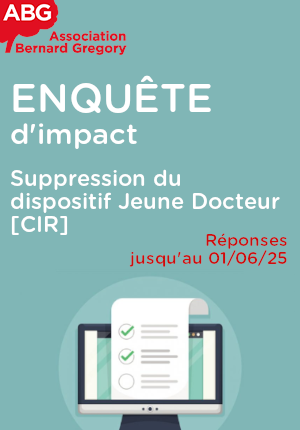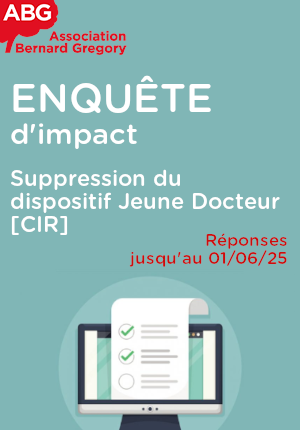De très chers exploits : pratiques problématiques, maltraitances et violences subies par les jeunes sportifs dans les institutions et parcours menant au sport de haut niveau. // De très chers exploits: problematic practices, abuse and violence suffered by
|
ABG-132109
ADUM-66145 |
Sujet de Thèse | |
| 21/05/2025 |
Université d'Artois
RONCHIN - Les Hauts de France - France
De très chers exploits : pratiques problématiques, maltraitances et violences subies par les jeunes sportifs dans les institutions et parcours menant au sport de haut niveau. // De très chers exploits: problematic practices, abuse and violence suffered by
- Psychologie, neurosciences
enquêtes, sociologie, psychologie, mesures, violences, sport
surveys, sociology, psychology, measurements, violence, sport
surveys, sociology, psychology, measurements, violence, sport
Description du sujet
Les Jeux Olympiques de Paris viennent de s'achever, et la plupart de celles et ceux qui ont été intéressés par cet évènement gardent en mémoire les exploits de sportifs. Il arrive aussi que l'on garde en tête des échecs mémorables, injustes. Les consommateurs de spectacles sportifs dans les stades, à la télévision, à la radio ou ailleurs se représentent ainsi le sport et ses acteurs, précisément comme des générateurs d'exploits et de performances. Mais qui intègre pleinement que ces sportifs ont vécu d'innombrables épreuves pour en arriver là ? Qui a bien en tête que les sportifs qui les intéressent représentent une infime partie de tous ces sportifs qui ont essayé de figurer parmi les meilleurs ? On ne pense pas aux centaines de milliers de pratiquants qui sont passés par les systèmes de détection, de formation, de sélection, d'entrainement et qui ont échoué. On ne pense pas aux sportifs qui ont vécu des épreuves blessantes ou violentes, aux parcours semés de problèmes dont certains brisent les sportifs. Cette thèse est consacrée à ces sportifs invisibles et invisibilisés, à ces personnes qui ont éprouvé durement le chemin vers un haut niveau qu'elles n'atteindront jamais. A cause d'épreuves destructrices socialement et/ou psychologiquement (maltraitances diverses et répétées, surentraînements, solitudes ou sentiments de solitude…), des sportifs relativement jeunes ont été comme brisés. Parfois sévèrement. Combien sont-ils ? Qui sont-ils ? Pourquoi et comment ont-ils été ainsi malmenés ? Que font les institutions sportives pour eux et que ne font-elles pas ? Cette recherche entend répondre à toutes ces questions et formuler des modèles ou quasi-modèles d'actions pour améliorer le sort de milliers de personnes meurtries, blessées et parfois cassées.
------------------------------------------------------------------------------------------------------------------------------------------------------------------------
------------------------------------------------------------------------------------------------------------------------------------------------------------------------
The Paris Olympic Games have just come to an end, and most of us who were interested in this event remember the exploits of sportsmen and women. Sometimes, however, we also remember memorable, unfair failures. Consumers of sporting events in stadiums, on television, radio or elsewhere see sport and its players as generators of feats and performances. But who fully understands that these athletes have gone through countless hardships to get where they are? Who realises that the athletes they are interested in represent a tiny fraction of all those who have tried to be among the best? No one thinks of the hundreds of thousands of athletes who have gone through the detection, training, selection and coaching systems and failed. We don't think of the athletes who have gone through hurtful or violent ordeals, and whose careers have been fraught with problems, some of which have broken them. This thesis is dedicated to these invisible, invisibilized athletes, to people who have struggled on the road to a high level they will never reach. As a result of socially and/or psychologically destructive ordeals (various and repeated mistreatments, overtraining, loneliness or feelings of loneliness...), relatively young athletes have been shattered. Sometimes severely. How many of them are there? Who are they? Why and how were they broken? What do sporting institutions do for them, and what don't they do? This research aims to answer all these questions and formulate models or quasi-models of action to improve the lot of thousands of bruised, injured and sometimes broken people.
------------------------------------------------------------------------------------------------------------------------------------------------------------------------
------------------------------------------------------------------------------------------------------------------------------------------------------------------------
Début de la thèse : 01/10/2025
------------------------------------------------------------------------------------------------------------------------------------------------------------------------
------------------------------------------------------------------------------------------------------------------------------------------------------------------------
The Paris Olympic Games have just come to an end, and most of us who were interested in this event remember the exploits of sportsmen and women. Sometimes, however, we also remember memorable, unfair failures. Consumers of sporting events in stadiums, on television, radio or elsewhere see sport and its players as generators of feats and performances. But who fully understands that these athletes have gone through countless hardships to get where they are? Who realises that the athletes they are interested in represent a tiny fraction of all those who have tried to be among the best? No one thinks of the hundreds of thousands of athletes who have gone through the detection, training, selection and coaching systems and failed. We don't think of the athletes who have gone through hurtful or violent ordeals, and whose careers have been fraught with problems, some of which have broken them. This thesis is dedicated to these invisible, invisibilized athletes, to people who have struggled on the road to a high level they will never reach. As a result of socially and/or psychologically destructive ordeals (various and repeated mistreatments, overtraining, loneliness or feelings of loneliness...), relatively young athletes have been shattered. Sometimes severely. How many of them are there? Who are they? Why and how were they broken? What do sporting institutions do for them, and what don't they do? This research aims to answer all these questions and formulate models or quasi-models of action to improve the lot of thousands of bruised, injured and sometimes broken people.
------------------------------------------------------------------------------------------------------------------------------------------------------------------------
------------------------------------------------------------------------------------------------------------------------------------------------------------------------
Début de la thèse : 01/10/2025
Nature du financement
Précisions sur le financement
Enseignement supérieur
Présentation établissement et labo d'accueil
Université d'Artois
Etablissement délivrant le doctorat
Université d'Artois
Ecole doctorale
586 Sciences Humaines et Sociales
Profil du candidat
-Sciences et Techniques des Activités Physiques et Sportives
-Sociologie
-psychologie
-très bonne maitrise de la langue française
-connaissance des mondes sportifs
-expérience d'enquêtes de trrain
-intérêts méthodologiques
-littérature de sociologie et de psychologie du sport
-Sciences and Techniques of Physical and Sports Activities -Sociology -Psychology -very good command of the French language -knowledge of the sporting world -experience of field surveys -methodological interests -sociology and sport psychology literature
-Sciences and Techniques of Physical and Sports Activities -Sociology -Psychology -very good command of the French language -knowledge of the sporting world -experience of field surveys -methodological interests -sociology and sport psychology literature
13/06/2025
Postuler
Fermer
Vous avez déjà un compte ?
Nouvel utilisateur ?
Besoin d'informations sur l'ABG ?
Vous souhaitez recevoir nos infolettres ?
Découvrez nos adhérents
 Aérocentre, Pôle d'excellence régional
Aérocentre, Pôle d'excellence régional  Groupe AFNOR - Association française de normalisation
Groupe AFNOR - Association française de normalisation  Laboratoire National de Métrologie et d'Essais - LNE
Laboratoire National de Métrologie et d'Essais - LNE  MabDesign
MabDesign  Ifremer
Ifremer  ONERA - The French Aerospace Lab
ONERA - The French Aerospace Lab  CASDEN
CASDEN  Nokia Bell Labs France
Nokia Bell Labs France  MabDesign
MabDesign  PhDOOC
PhDOOC  ADEME
ADEME  ASNR - Autorité de sûreté nucléaire et de radioprotection - Siège
ASNR - Autorité de sûreté nucléaire et de radioprotection - Siège  Institut Sup'biotech de Paris
Institut Sup'biotech de Paris  CESI
CESI  TotalEnergies
TotalEnergies  Généthon
Généthon  Tecknowmetrix
Tecknowmetrix  SUEZ
SUEZ  ANRT
ANRT







